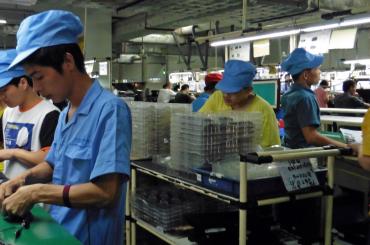

Jing Cai
Associate Professor, Department of Agricultural and Resource Economics, University of Maryland
Jing Cai is an Associate Professor at the University of Maryland. She received her PhD from the University of California at Berkeley in 2012. Her research areas are development economics and household finance. Her current research examines the growth of micro-enterprises and SMEs, impacts of tax incentives on firm behavior, and diffusion and impacts of financial innovations in developing countries. She is a Co-Chair of the firm sector of the Abdul Latif Jameel Poverty Action Lab (J-PAL), a Research Associate at the National Bureau of Economic Research (NBER), and an affiliate of the Bureau for Research and Economic Analysis of Development (BREAD). She currently serves as an associate editor of the American Economic Journal: Applied Economics, the Journal of Development Economics, and the Economic Development and Cultural Change.
Recent work by Jing Cai
-

What have we learned about microfinance?
Evidence from a range of contexts has shown that while microfinance does not have transformative impacts on lifting people out of poverty, it can greatly benefit specific borrowers such as experienced entrepreneurs.
Published 30.01.25
-

Fostering connections between firms improves business performance
Evidence from China finds that firms underestimate the value of new partnerships and therefore under-search for partners. As a result, referrals to new suppliers and clients can greatly improve firm performance.
Published 14.01.25
-

Indirect effects of access to finance: Evidence from China
Access to finance improved firm performance, product quality and price, but disadvantaged competitor firms
Published 29.07.22
-

Improving management through worker feedback: Auto-manufacturing in China
Letting workers provide feedback on their managers leads to significant reductions in worker turnover and increases in team productivity
Published 23.10.20
-

Subsidy policies and insurance demand
Subsidy policies combined with financial education can generate learning from experiences and promote long-run insurance take-up
Published 14.08.20
-

The (unintended) effects of China’s 2004 tax reform
Firms used VAT savings from China’s tax reform to invest in machinery as intended, but the reform reduced firm productivity, exports and employment
Published 23.01.19
-

Interfirm relationships and business performance in China
Regular meetings between the managers of young firms in Nanchang, China increased revenue and improved a broad range of performance measures
Published 02.08.17